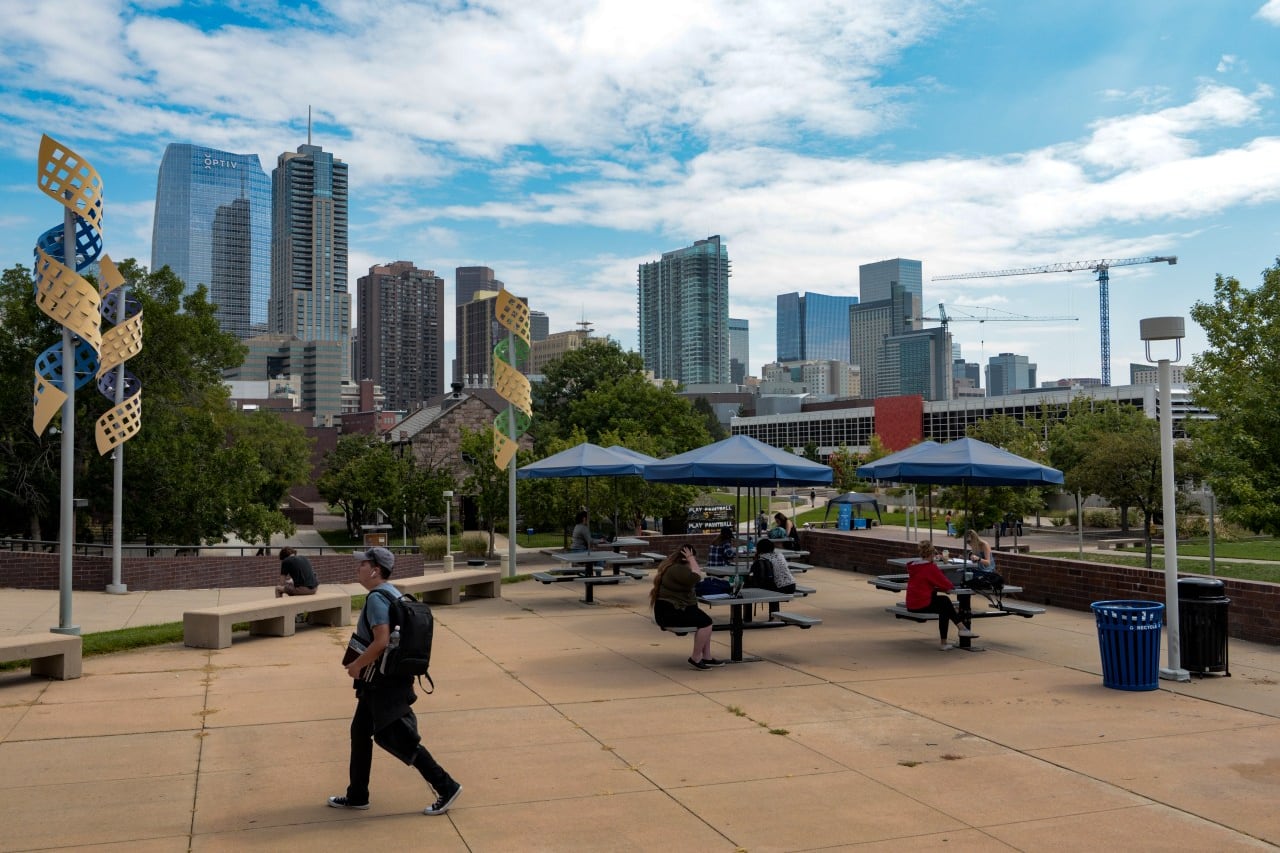Colorado’s community colleges more than doubled their graduation rates from 2015 to 2020 by focusing on student support in and out of the classroom, according to a study released Tuesday.
The Colorado Community College System’s graduation rates rose to 31% from 15% five years earlier, according to the report by Complete College America that details four- and two-year college graduation rates at states, systems, and jurisdictions that are members of the organization. The nonprofit organization advocates for states and college systems to focus on improving graduation rates; the report cites the challenges schools face to graduate more students.
Graduation rates improved among students from all backgrounds, including Black and Hispanic students who graduate at lower rates than their peers.
Meanwhile, at four-year colleges, Colorado’s schools improved graduation rates to 35% during the same time period — up from 33%.
Complete College America leaders attribute increases at two-year colleges to the state changing how it offers remedial education, a better focus on supporting students who face life challenges, and more academic advising.
“Colorado really went all in as much as possible,” said Charles Ansell, vice president for research, policy, and advocacy at Complete College of America.
Joe Garcia, Colorado Community College System chancellor, said the shift began in the last decade because the state focused less on enrolling students and more on getting them to graduate.
Associate degrees earned at two-year community colleges give students the necessary skills for jobs in internet technology, healthcare, or energy production. Some students also transfer to four-year colleges and continue their education.
The state reformed remedial education programs so students could do college-level coursework without paying extra for classes that don’t get them credit toward graduation. Instead, students now learn college algebra or English skills through tutoring or additional class time while they’re in a class that leads to credit.
Ansell said the practice is good for students because it ends up reinforcing lessons. And it doesn’t damage student morale by making them take a class that doesn’t earn them credit. That keeps students enrolled, Ansell said.
Remedial classes “end up being a real downer because you’re told you’re college material and then the first thing that you’re told is you have to take the classes that you just took in high school,” Ansell said.
The college system has also emphasized ensuring students have basic needs met. More community colleges have food pantries or step in when students face housing insecurity.
And the community college system has ramped up advising over the years so students can see a path toward a degree, Garcia said. The system has streamlined course catalogs, which Garcia said were overly confusing and caused students to take classes that didn’t connect to their eventual career goals.
The state has more work to do, Garcia said. In the last two years, community college leaders have expanded degree programs that allow community college students to easily enroll in four-year colleges. One example is a recent engineering partnership with the Colorado School of Mines.
Ansell said the state will also need to increase support for basic needs or other challenges students are facing by placing more funding into those programs, especially because the pandemic has changed whether students decide to go to college.
More students of color are choosing not to enroll in college, Garcia said. Since the pandemic, more students are choosing to work or don’t enroll because they worry about college costs. That’s contributed to a dip in community college enrollment that hasn’t recovered since the start of the pandemic. And fewer students are taking classes full time and instead opting to go to school part time, Garcia said.
The Complete College of America report shows students who don’t take classes full time have a tougher time graduating.
“What all of us in higher education are worried about right now is losing ground we fought so hard to gain over the last 10 years,” Garcia said.
Jason Gonzales is a reporter covering higher education and the Colorado legislature. Chalkbeat Colorado partners with Open Campus on higher education coverage. Contact Jason at jgonzales@chalkbeat.org.






